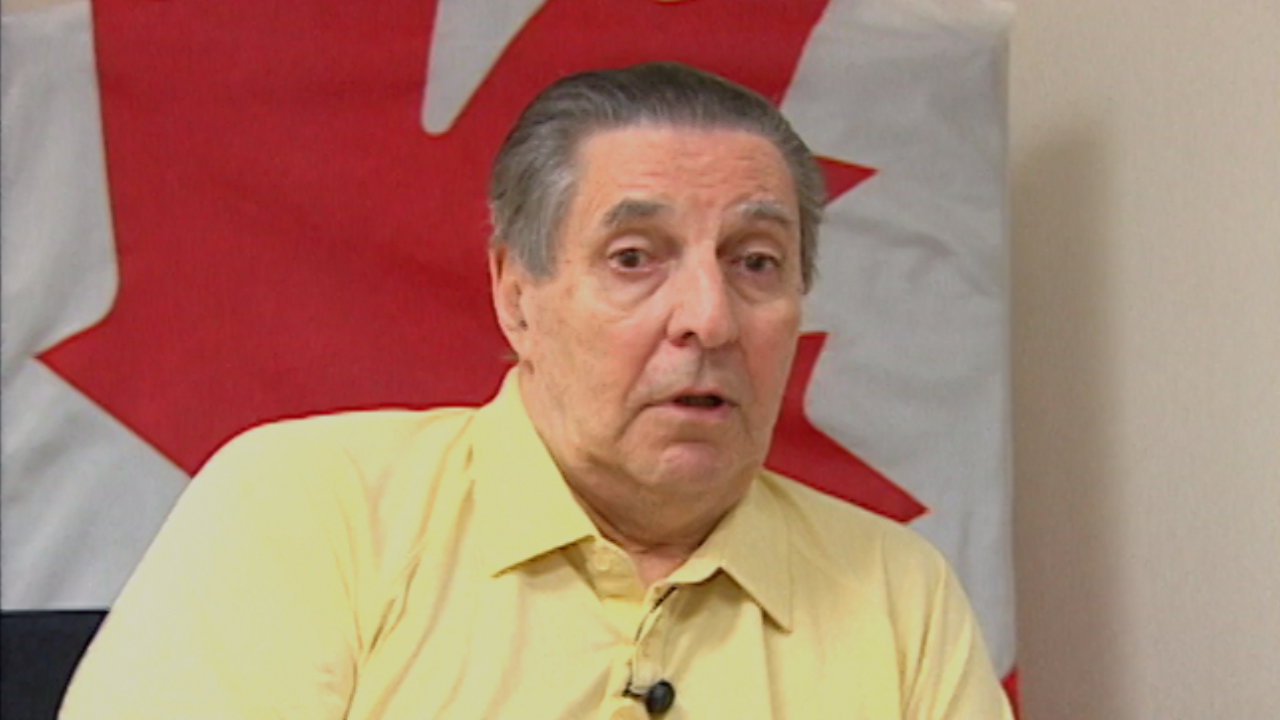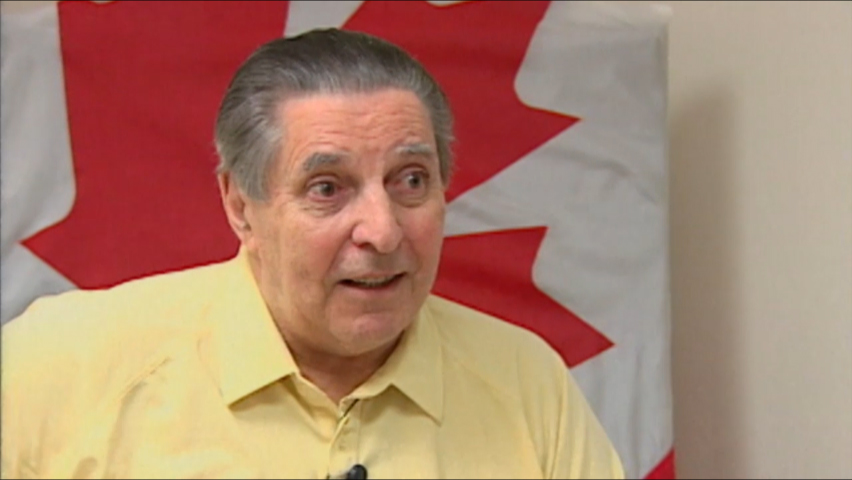Fall Of Rome and D-Day
Heroes Remember
Fall Of Rome and D-Day
Transcript
Description
Mr. Gorie speaks of the fall of Rome on June 5, 1944, the D-Day landing in France the following day and the less-than-kind nickname, D-Day Dodgers, given to the troops in Italy at the time of the D-Day invasion by Lady Astor.
Norman Gorie
Mr. Norman Gorie was born on April 22, 1923 in Saint John, New Brunswick. His father did not have military service but his uncle served in the First World War. He grew up in New Brunswick with his two sisters and upon graduation from high school, at the age of 17, he began working as a carpenter building a military camp in Sussex, New Brunswick. In February, 1941, Mr. Gorie joined the Canadian Army enlisting in the 8th New Brunswick Hussars. He served with the 5th Armoured Regiment working as a Wireless Operator and attained the rank of sergeant serving in Italy and Northwest Europe and was in Holland when the war ended. He later returned home to New Brunswick.
Meta Data
- Medium:
- Video
- Owner:
- Veterans Affairs Canada
- Duration:
- 02:50
- Person Interviewed:
- Norman Gorie
- War, Conflict or Mission:
- Second World War
- Location/Theatre:
- Italy
- Branch:
- Army
- Units/Ship:
- 5th Armoured Regiment, 8th New Brunswick Hussars
- Rank:
- Sergeant
- Occupation:
- Wireless Operator
Related Videos
- Date modified:






